Like a dog with a bone: The Bolivian helping strays
- Published
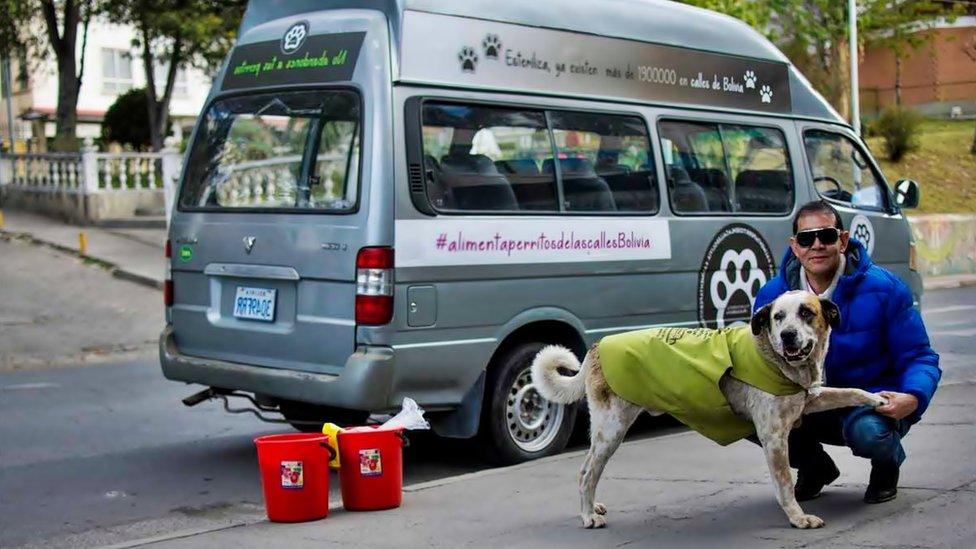
Fernando Kushner spends many hours every day feeding stray dogs in La Paz
Every day, just before dawn, Fernando Kushner climbs into his worn minibus and heads out into the streets of La Paz to feed this Bolivian city's stray dogs.
Four years ago, when he was a high-flying businessman, Ferchy, as his friends call him, used to think little of arriving home at the same time after a night out partying.
"I've given up everything for my dogs. Romances, family, career - everything," he says, with the passion of a true convert.
Ferchy credits a stray mongrel called Choco for this dramatic about-turn which saw him give up his successful career as a marketing executive in the fashion world to dedicate his time to La Paz's street dogs.
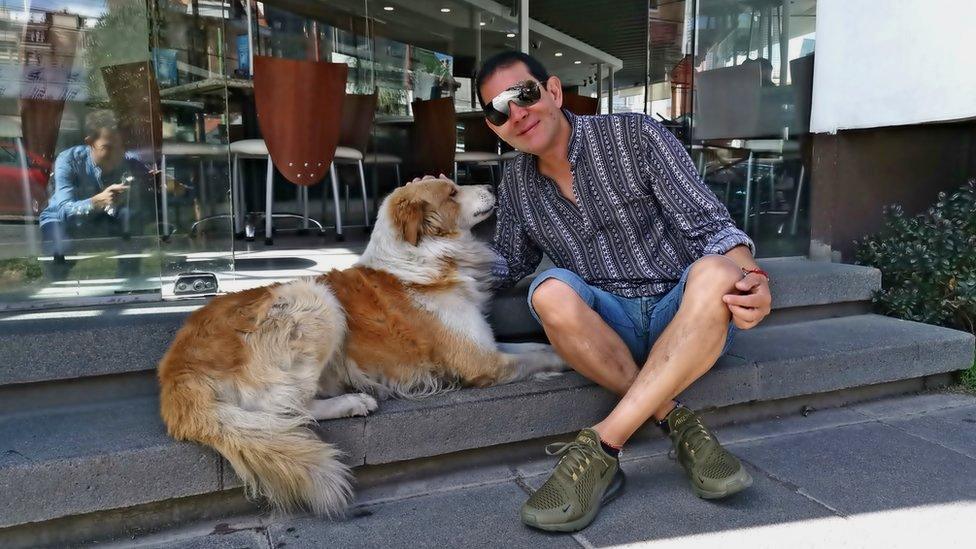
Choco was the stray which started everything
He spotted the dog after coming out of his yoga class and gave him a piece of his sandwich. The stray nuzzled his neck and licked his hands, and that simple act of gratitude persuaded Ferchy to come back and feed Choco the following day.
Before he knew it, he was feeding five dogs, then 10, then 20. Today, the figure runs into the hundreds.
Doing the rounds
His feeding routine is similar every day; he visits the same seven or eight districts and leaves portions of food in the same spots. Each dog gets 1kg (2lb 3oz) or so of chicken and bones per day, topped up with a 250g portion of dog biscuits.
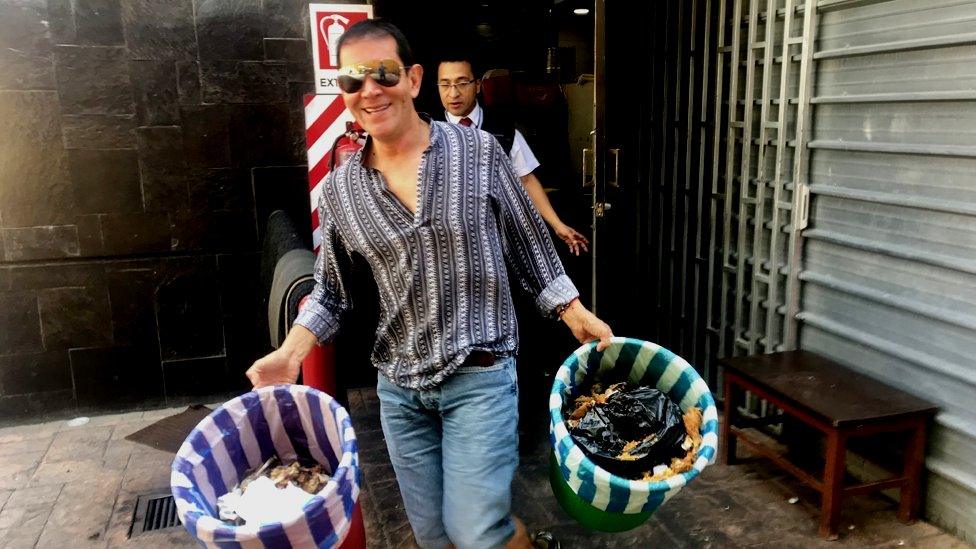
Ferchy has convinced a number of fast food outlets to let him have their leftovers
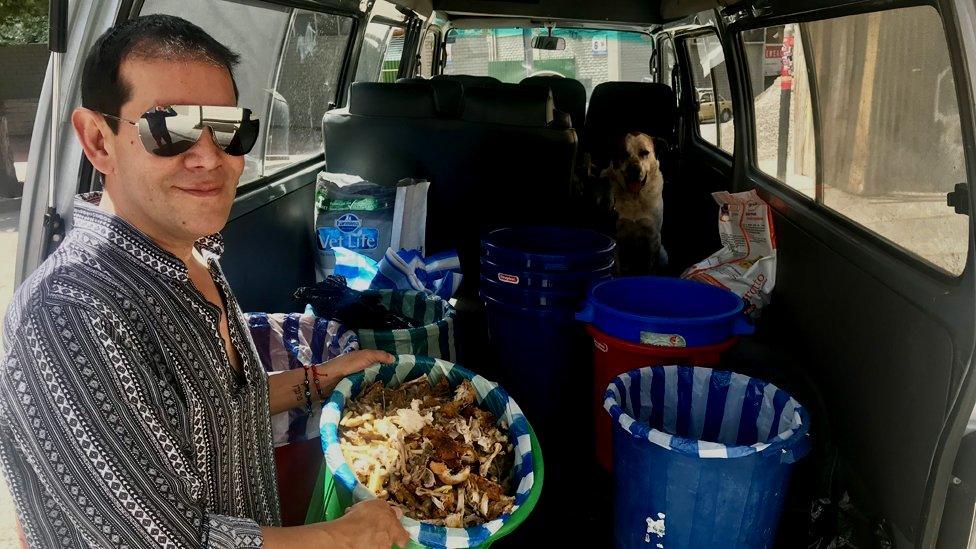
Ferchy does two rounds every day, one in the morning and one in the evening. In between, he spends another three to four hours driving round La Paz to pick up food from various donors.
The richest pickings come from two fast-food chains, Don Pollo and Pollos Copacabana.
On average, he collects 15 dustbin-sized containers, each of which can hold 50 litres (11 gallons). He tops up the leftovers with dog biscuits. Fifty 22kg sacks generally see him through the month, at a cost of 9,000 Bolivianos ($1,300; £990), which he pays out of his own pocket.
In addition to feeding "his dogs", he also volunteers at different dog charities and shelters around La Paz.
María Angulo Sandoval, who works at a dog shelter in the neighbouring municipality of El Alto, says Ferchy has stepped in where city officials have failed.
"The city authorities have a responsibility for public health and safety, which includes keeping the dog population under control. But they do absolutely zilch," she says.
Sacrifices galore
Ferchy says that giving up his lucrative job for the dogs was easy and that the decision to resign came "from one day to the next".
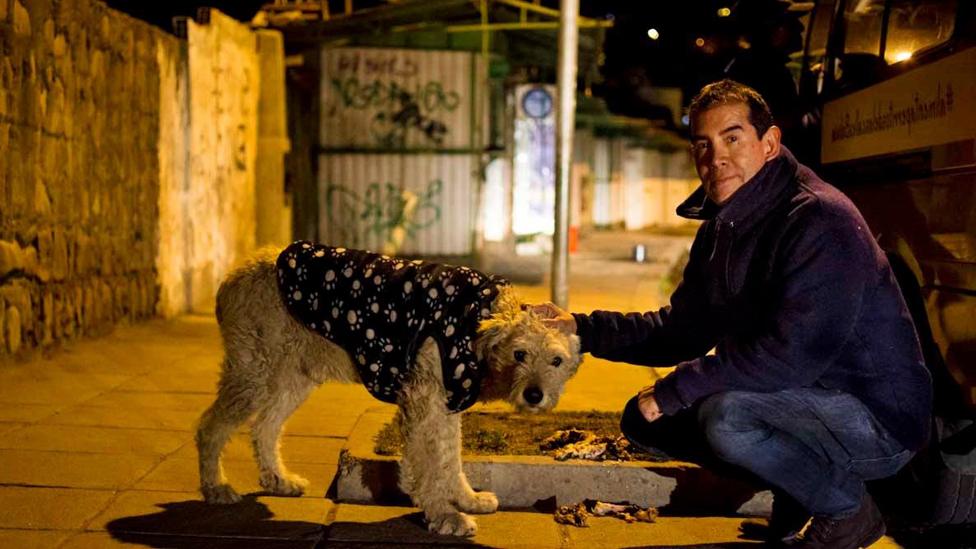
Less straightforward has been reneging on family commitments. The first time he missed his family's Christmas celebration because he was feeding the dogs, his relatives "hit the roof".
Today, they are a little more resigned.
"I thought he'd grow bored of it all after about three months and give up," says his mother, Lolita Kushner. "But every time I see him, he seems more preoccupied about the dogs than ever and more committed to his mission."
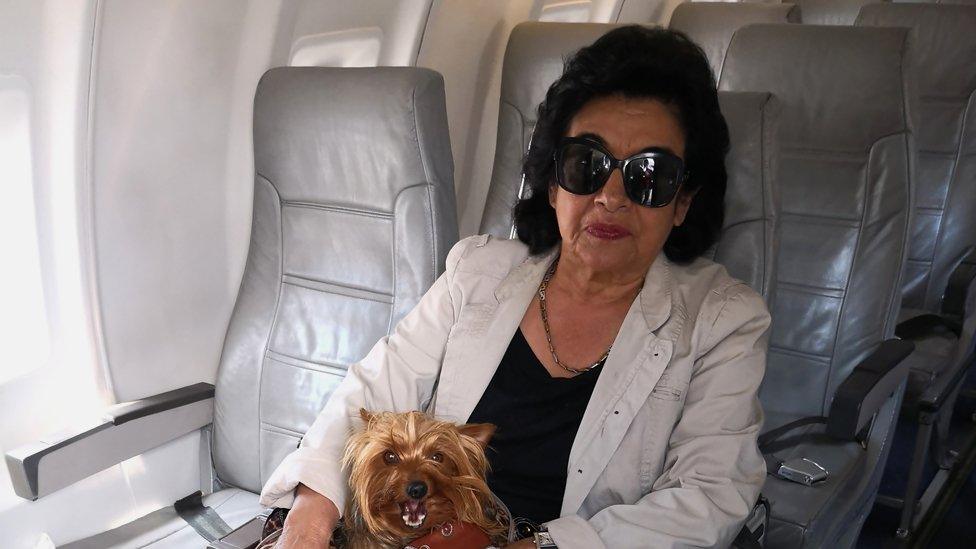
Ferchy's mother says she at first thought her son's passion for the dogs would blow over
Ferchy hopes to employ some helpers in the near future, but for now his is more or less a one-man mission. He does not even have time to date, he says. That has not stopped him considering a future partner, but "they would have to love animals, it's a non-starter, otherwise".
Not everyone is as passionate about the strays as Ferchy is. Local resident Raúl Alcázar thinks that by feeding the street dogs, Ferchy may be aggravating the problem. "The dogs stay on the street this way, rummaging through the trash and generally creating a mess," he says.
Mr Alcázar also wonders if the dogs are the most needy recipients. "What he does is good, but wouldn't it be better to give the money to an orphanage or an old people's home?"
Ferchy does not deny that Bolivia - where one in three people are poor and one in six classify as extremely poor - has acute social needs. But he argues that there are "hundreds of charities" looking after Bolivia's poor and only a precious few caring for its animals.
Using his connections
Even so, he recognises that his endeavours are but but a drop in the ocean. By his own reckoning, about 250,000 stray dogs live on the streets of La Paz, with a further 350,000 in El Alto.
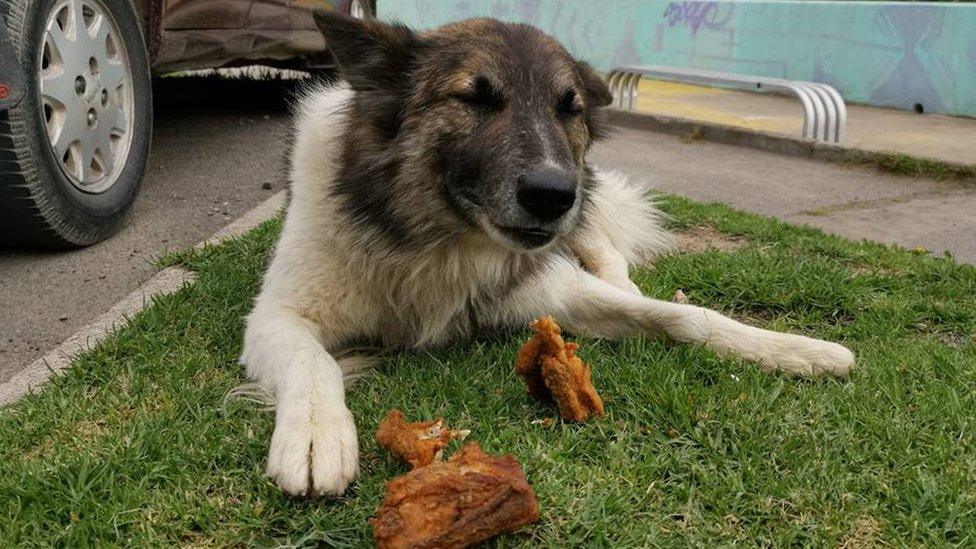
In his view, the only long-term solution to La Paz's street-dog problem is public education and awareness raising.
This is where his background in marketing comes in. After spending more than 15 years helping spearhead campaigns for luxury brands, he has absolutely no qualms about tapping his social and professional contacts to aid him in his mission.
So far, he has persuaded dozens of major companies in Bolivia to publicise his slogan to "Adopt, don't buy" ("Adopta, no compres") and his biggest coup to date has been to get private Bolivian airline Amaszonas to agree to cover the full cost of flying dogs from one city to another for adoption.
At present, he is busy trying to raise money to build a sanctuary for old strays, which will double as a sterilisation centre. He has already convinced Incerpaz, one of Bolivia's largest brick makers, to give him bricks at cost price.
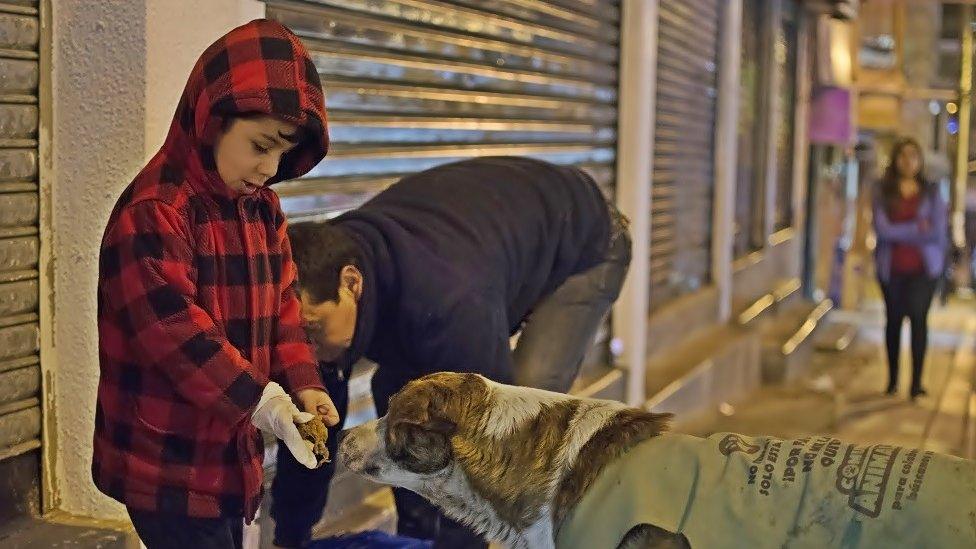
Ferchy hopes to get some more helpers soon but he mainly feeds the dogs on his own
Ferchy's tenacity on behalf of La Paz's street dogs seems to know no bounds. He has even reached out through diplomatic channels to Jared Kushner, US President Donald Trump's son-in-law.
"Although we have the same surname, he's no relation. But what is there to lose?" he reasons. "If he wanted to, he could pay to sterilise all the dogs in Bolivia."